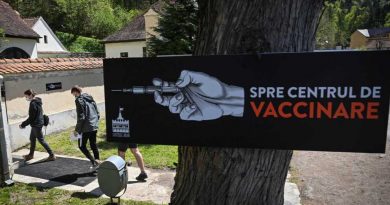Greece extends travel restrictions as Omicron variant strikes fear across Europe
Travel: Simon Calder tells holidaymakers ‘don’t do anything hasty’
We use your sign-up to provide content in ways you’ve consented to and to improve our understanding of you. This may include adverts from us and 3rd parties based on our understanding. You can unsubscribe at any time. More info
Greece will ban many people from non-EU countries from entering the country until December 3. British tourists are still allowed to enter Greece despite not being in the EU.
Britons will need to fill out a passenger locator form to enter Greece and will need to present the form at Greek entry ports.
British tourists will need to show proof of vaccination against COVID-19, proof of recovery from COVID-19 in the last 180 days or a negative PCR result.
Negative PCR tests will be accepted for entry if they were taken 72 hours before arrival in Greece.
These rules are in place for British travellers over the age of 12 and arrivals may be required to take a COVID-19 test once in Greece.

Proof of vaccination is required to enter public spaces including shops and restaurants in Greece.
British tourists should also be prepared to prove they are vaccinated if asked by local officials.
Tourists and residents must wear a facemask in all indoor public and communal spaces including on public transport.
If a group of people is not from the same family, only three people are allowed to travel in a taxi or private vehicle with up to seven seats.
Before the Omicron variant was identified the Greek Prime Minister, Kyriakos Mitsotakis, had implemented staggered working hours for Greek residents.
He said: “This is indeed a pandemic of the unvaccinated. Greece is mourning unnecessary losses because it simply does not have the vaccination rates of other European countries.”
The Prime Minister also announced that vaccines for residents aged 60 and over would only be valid for seven months.
This rule was introduced to encourage older people to get a COVID-19 booster jab.

The Omicron variant has sparked fear across the globe with many countries introducing new travel rules.
The UK has banned travel to and from 10 African countries including South Africa, Zimbabwe and Malawi.
Travellers to the UK will also need to take a PCR test on or before day two after arrival in the UK from 4am on Tuesday November 30.
They will also need to self-isolate until they receive a negative result from their PCR test.

British tourists are advised to check the UK Government website for the latest travel updates as restrictions can change rapidly.
In a press conference, Boris Johnson said: “We need to slow down the spread of this variant here in the UK, because measures at the border can only ever minimise and delay the arrival of a new variant rather than stop it all together.”
It is not yet known whether vaccines will be less effective against the Omicron variant but it appears the variant is able to spread more quickly.
Omicron cases have now been reported in the UK, Germany, Belgium and Hong Kong.
Source: Read Full Article



